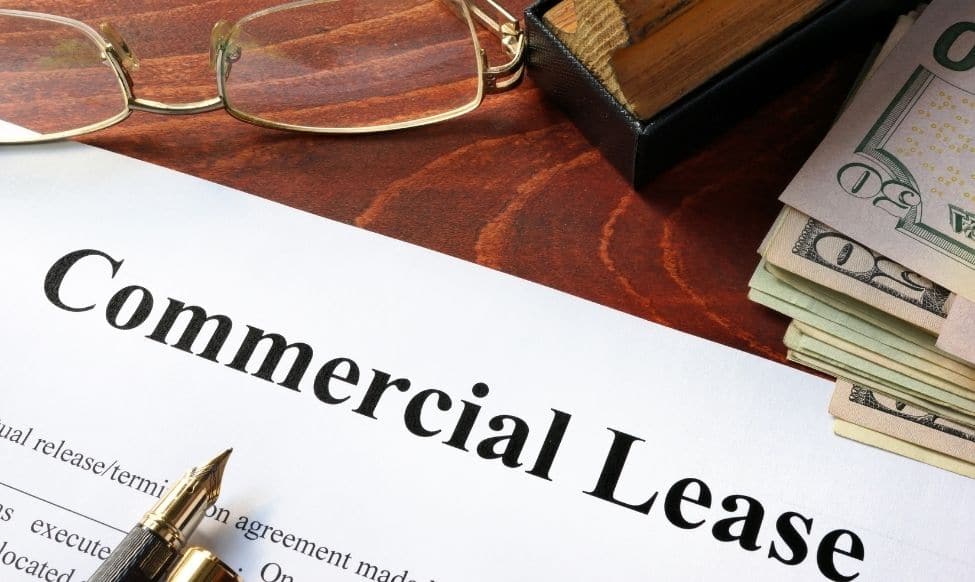By Patrick McCormick
While the COVID-19 pandemic has not been kind to many business owners who had to comply with temporary closures and declining revenues, commercial tenants have nevertheless faced an uphill battle in Court trying to walk away from their rent payment obligations. While tenants seeking to be completely absolved from paying rent have not met much success in the court system, we have assisted many clients in successfully renegotiating their lease terms without resorting to litigation. Here, a look at the arguments that haven’t worked in Court, illustrating that negotiation is often a better strategy for landlords and tenants alike.
The unprecedented pandemic led to many commercial landlords and tenants finding themselves in the position of landlord Bay Plaza Community Center and tenant Vistasite Eye Care.[1] This commercial landlord-tenant case stemmed from the tenant’s failure to pay rent from April 1, 2020 (the height of the pandemic) and after. Bay Plaza commenced a suit for back rent and moved for summary judgment. In opposition, Bronx Vistasite sought cover under the doctrines of impossibility and frustration of purpose to excuse its failure to pay rent. The tenant also argued that then-Governor Cuomo’s various orders relating to the pandemic devastated its business, and that the temporary closure of the business due to these orders constituted a “taking” under the lease.[2]
The Supreme Court, New York County (Bluth, J.) disagreed. In granting the landlord’s summary judgment motion, the Court found that Governor Cuomo’s executive orders did not constitute a taking since the case did not involve the government condemning the building or invoking the doctrine of eminent domain. Further, the Court found that the doctrines of frustration of purpose and impossibility “have no place in this case.” The Court contended that a temporary hardship like the one described by the defendant does not excuse a tenant’s obligation to pay rent and therefore ruled in favor of the landlord and plaintiff in the case: Bay Plaza Community Center.
A similar scenario played out between landlord 695 Fifth Owner and tenant Valentino U.S.A.[3]Here, luxury retail and fashion brand Valentino brought suit, contending that the lease of its four-story Valentino Fifth Avenue New York boutique should be terminated, and seeking a determination that Valentino should be entitled to an abatement of any rent claimed due.
The lease had clearly stated that Valentino would be able to operate as a boutique retail store for customers to view and sample their merchandise in a luxurious setting, in addition to experiencing high-quality service and amenities. The lease also provided that Valentino was required to be open for business and continuously operate under the Valentino brand. Because of the COVID-19 pandemic, including the restrictions, social-distancing measures, a lack of consumer confidence, and a prevailing fear of “non-essential” luxury retail boutiques, Valentino claimed that its business had been “substantially hindered, rendered impractical, unfeasible, and no longer workable.”
Given the continuing business restrictions even as the shutdown orders eased, Valentino argued that it would be impossible to operate its boutique as initially envisioned under the Lease. Thus, Valentino contended that their continued operation at that location was impracticable, infeasible, unworkable, and/or impossible. Valentino then gave notice to the defendant landlord that they would vacate and surrender the premises by December 31, 2020.
Despite Valentino’s complaint, the New York County Supreme Court (Borrok, J.) dismissed the case because pursuant to the lease, the parties expressly allocated the risk that Valentino would not be able to operate its business and that Valentino is therefore not forgiven from its performance, including its obligation to pay rent by virtue of a state law.
The fact that the COVID-19 pandemic was not specifically enumerated by the parties does not change the result because the lease was drafted broadly and did not provide that government regulations and events beyond the reasonable control of the party “delayed in performing work” shall excuse the payment of rent. Furthermore, Valentino’s general allegation that the landlord failed to maintain the premises lacks causation since it appears Valentino continued to operate in the store as of July 22, 2020.
The challenges faced by the tenants trying to get out of their obligations in these cases – as well as the challenges faced by the landlords spending time and money in Court – illustrate that commercial landlords and tenants are often better served by negotiating their disputes rather than litigating them. CMM has successfully negotiated countless commercial lease issues since the start of the pandemic.
Please contact us to discuss the path forward.
[1] Bay Plaza Community Ctr. v Bronx Vistasite Eyecare, Inc., 2021 NY Slip Op 31568(U) May 5, 2021 Supreme Court, New York County
[2] Under the COVID-19 Emergency Eviction and Foreclosure Act of 2020, a residential or commercial tenant has the option to submit a “hardship declaration” stating that due to COVID-19, they are unable to pay rent. In that case, a landlord would not be able to evict the tenant until the moratorium is lifted (former Governor Cuomo signed an extension of the act in May, extending the moratorium until August 31, 2021; however, in September, Governor Hochul signed into law a new moratorium which is in effect until January 15, 2022). In the Bay Plaza Community Ctr. v Bronx Vistasite Eyecare, Inc., no such declaration was filed.
[3] Valentino USA v. 693 Fifth Owner LLC, 70 Misc.3d 1218(A) (Sup. Ct. N.Y. Cnty. Jan 27, 2021)

